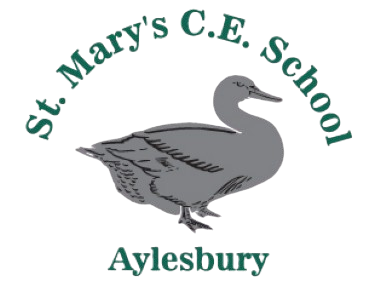PE
Sport has literally changed my life. I’m here because of sport. It has given me a lot of confidence, a lot of courage, and a lot of discipline. It’s helped me to be the person that I’ve grown to be today.”
- Serena Williams
Intent
Our intent for P.E at St Mary's is for all children to experience excellent, engaging P.E lessons and school sport that will lead to lifelong participation. Our PE curriculum is inclusive and ensures that pupils of all abilities are suitably challenged and supported, this includes the more able and children with SEND requirements. P.E lessons are focused around the fundamental movement skills, as well as building collaboration and personal challenge.
During their time at St Mary's, children will:
- Learn in a happy and safe environment in which they develop their knowledge and understanding, fundamental motor skills, self-confidence, resilience and social and emotional skills.
- Develop a positive view of physical activity and sport from an early age in order to encourage continued participation through later life.
- Develop fundamental skills of agility, balance and co-ordination which are vital to everyday life, as well as applying them to sporting environments.
- Understand and see the importance of a physically active lifestyle when obesity and a sedentary lifestyle are an increasing problem.
- Have the opportunity to try a wider range of activities and sports in order to encourage wider participation.
- Develop social and teamwork skills through working together, understanding each other’s strengths and overcoming challenges.
Implementation
Physical Education lessons are taught by specialist PE coaches from Game On as well as class teachers. The lessons ensure a range of sport skills are covered and build sequentially over time to ensure progression of skills for all. Each class has two hours of high-quality PE delivered by the specialist as well as lunchtime engagement where our UKS2 pupils lead playground games for our younger pupils. By the end of each key stage, pupils are expected to know, apply and understand the skills and knowledge as specified in the relevant programme of study.
EYFS
In the Early Years, pupils should develop fundamental gross motor skills and begin to develop their movement skills including agility, balance and coordination. They should begin to engage in cooperative physical activities. Pupils should be taught to:
- negotiate space and obstacles safely with consideration for themselves and others
- demonstrate strength, balance and coordination when playing
- move energetically such as running, jumping, dancing, hopping, skipping and climbing. These early experiences are then built upon as children progress into KS1.
Key stage 1
In KS1, pupils should develop fundamental movement skills, become increasingly competent and confident and access a broad range of opportunities to extend their agility, balance and coordination, individually and with others. They should be able to engage in competitive (both against self and against others) and co-operative physical activities, in a range of increasingly challenging situations. Pupils should be taught to:
- master basic movements including running, jumping, throwing and catching, as well as developing balance, agility and co-ordination, and begin to apply these in a range of activities
- participate in team games, developing simple tactics for attacking and defending
- perform dances using simple movement patterns.
Key stage 2
In KS2, pupils should continue to apply and develop a broader range of skills, learning how to use them in different ways and to link them to make actions and sequences of movement. They should enjoy communicating, collaborating and competing with each other. They should develop an understanding of how to improve in different physical activities and sports and learn how to evaluate and recognise their own success.
Pupils should be taught to:
- use running, jumping, throwing and catching in isolation and in combination;
- play competitive games, modified where appropriate, and apply basic principles suitable for attacking and defending;
- develop flexibility, strength, technique, control and balance;
- perform dances using a range of movement patterns;
- take part in outdoor and adventurous activity challenges both individually and within a team; compare their performances with previous ones and demonstrate improvement to achieve their personal best.
Swimming and water safety
Pupils should be taught to:
- swim competently, confidently and proficiently over a distance of at least 25 metres;
- use a range of strokes effectively [for example, front crawl, backstroke and breaststroke]; perform safe self-rescue in different water-based situations
Impact
We measure the impact of our PE curriculum through the following methods:
- observing of pupils in lessons;
- observations of performances in small groups or individuals;
- listening to pupil feedback from observing others
- listening to pupils’ reflections of own abilities
- Interviewing the pupils about their learning (pupil voice).
- Annual reporting of standards across the curriculum to parents.
- Subject tracking.
PE specialists report back to class teachers on the competencies achieved within each unit covered. The PE subject leader will continually monitor the impact of PE is having on the children’s learning, through observations, talking with pupils, to ensure the progress of knowledge and skills is being taught. Impact will also be measured through key questioning skills built into lessons, child-led assessment such as review aimed at targeting next steps in learning.

